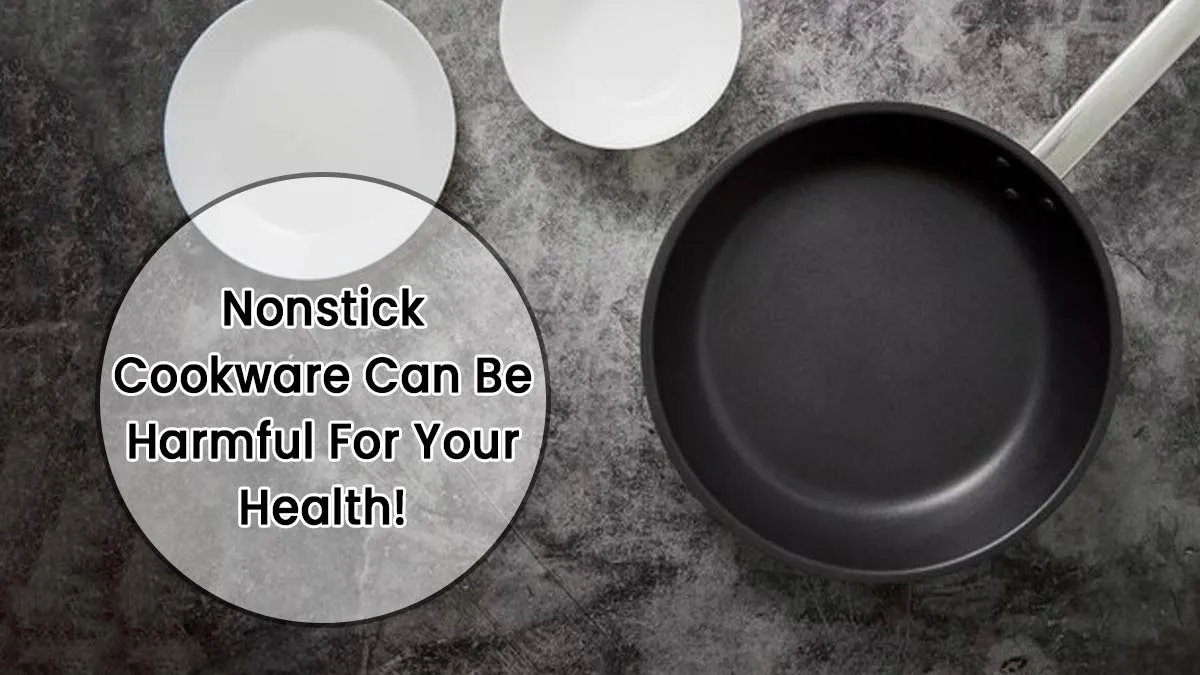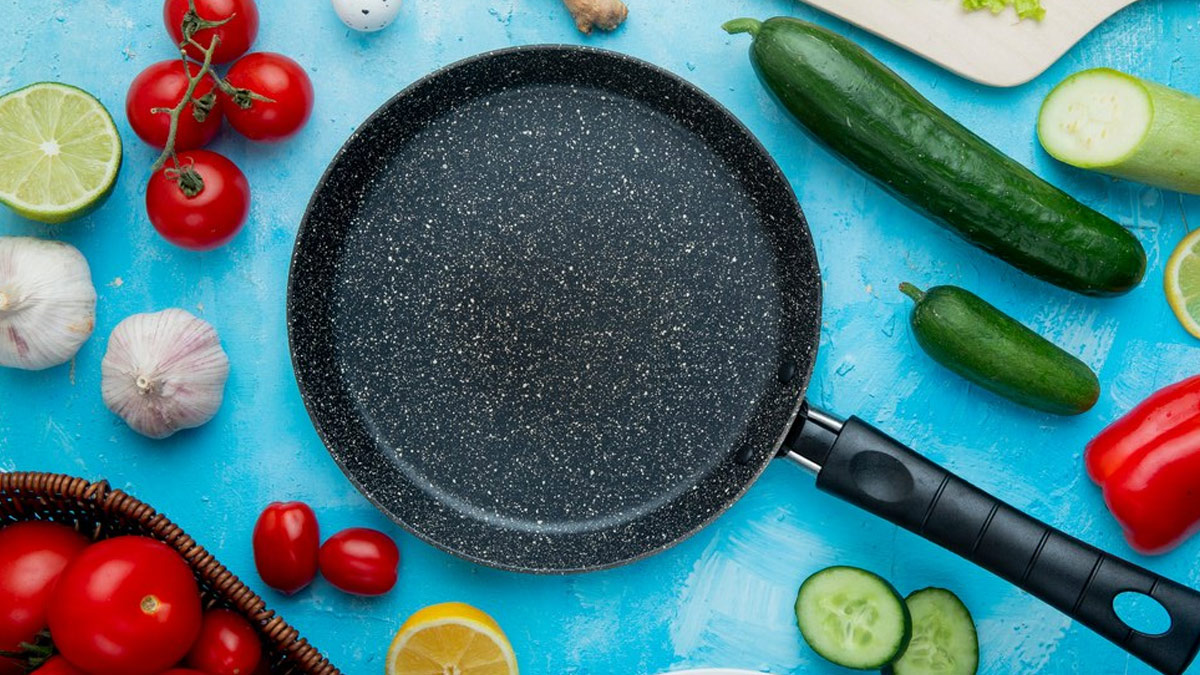
Nonstick cookware is a kitchen favourite for its easy cooking and cleanup. But recent concerns about its safety have left many wondering: Are nonstick pans harmful to health? It has become a staple in modern kitchens, loved for its convenience and ease of use. However, growing concerns about its safety have sparked debates among health experts and consumers alike. While nonstick pans make cooking and cleaning a breeze, questions about the potential health risks associated with their use cannot be ignored. Dr Ravi Kesari, General Physician, Apollo Spectra Hospitals, Bengaluru, explains the link between PFOA (perfluorooctanoic acid), a chemical used to make Teflon coatings) with liver damage and cancer.
Table of Content:-
What Is PFOA, and Why Is It Dangerous?
-1739780597384.jpg)
PFOA is a synthetic chemical once used to make Teflon coatings. Studies show it stays in the environment and human body for years. The coating on most nonstick cookware contains chemicals like PFOA, which was widely used until recent years. Though many brands now claim to be “PFOA-free,” older pans or low-quality products may still pose risks.
Dr Kesari explains, “When nonstick pans are overheated (above 500°F), they release toxic fumes. These fumes can cause polymer fume fever, a temporary flu-like illness.” Repeated exposure might lead to chronic respiratory problems. Additionally, scratched or peeling coatings can release harmful particles into food.
Link Between PFOA With Liver Damage and Cancer
Dr Kesari advises avoiding high heat, using gentle utensils, and switching to safer alternatives like stainless steel or cast iron. PFOA (perfluorooctanoic acid) was once widely used in the production of nonstick cookware and has been linked to serious health issues, including liver damage and cancer. "A damaged or scratched Teflon pan may leach chemicals like PFOA that have links to liver damage and cancer," he added.
The expert highlights two major concerns.
- Liver Damage: PFOA accumulates in the liver, causing inflammation and impairing function over time.
- Cancer Risk: The International Agency for Research on Cancer classifies PFOA as “possibly carcinogenic,” linking it to kidney and testicular cancers.
- Even small doses of PFOA can disrupt hormones and weaken immunity. Children and pregnant women are especially vulnerable.
Health Risks of Nonstick Cookware
Using nonstick pans incorrectly increases health risks. The expert shares these key warnings:
- Overheating: Cooking on high heat breaks down the coating, releasing toxic fumes.
- Scratched Surfaces: Metal utensils or abrasive cleaners damage the coating, raising the risk of chemical leaching.
- Long-Term Use: Older pans with worn-out coatings are more likely to release harmful chemicals.
- Symptoms like headache, chills, or cough after cooking may signal fume exposure. Over time, this could lead to chronic lung issues.
A 2020 study by the National Institutes of Health (NIH) found a strong link between PFOA exposure and liver damage. Researchers analysed blood samples from 4,000 adults and discovered that those with higher PFOA levels had elevated liver enzymes, a marker of liver stress. The study also noted that PFOA exposure increased the risk of non-alcoholic fatty liver disease (NAFLD), a condition linked to cirrhosis and liver cancer. This research supports Dr Kesari’s warnings, emphasising the need to avoid PFOA exposure through cookware.
Safer Alternatives to Nonstick Cookware

Switching to safer cookware reduces health risks. Dr Kesari recommends these options:
- Stainless Steel: Durable and non-reactive, ideal for frying and sautéing.
- Cast Iron: Naturally nonstick when seasoned; adds iron to food.
- Ceramic Coating: Free of PFOA and PTFE (Teflon), but avoid overheating.
- Always use wooden or silicone utensils to prevent scratches. Cook on low or medium heat, even with safer pans.
Conclusion
Nonstick cookware offers convenience but poses health risks if misused. Overheating or damaging the coating releases toxic fumes and chemicals like PFOA, linked to liver damage and cancer. Choosing safer alternatives like stainless steel or cast iron, avoiding high heat, and proper disposal of old pans can protect your health and the environment. As Dr. Kesari advises, “Prioritize long-term wellness over short-term convenience.” Make the switch today your body and the planet will thank you.
Also watch this video
How we keep this article up to date:
We work with experts and keep a close eye on the latest in health and wellness. Whenever there is a new research or helpful information, we update our articles with accurate and useful advice.
Current Version